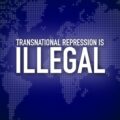The U.S. Department of State in its 2012 Human Rights report for Guyana identified several human rights issues including:
The U.S. Department of State in its 2012 Human Rights report for Guyana identified several human rights issues including:
Abuses involved suspects’ and detainees’ complaints of mistreatment by security forces, unlawful killings by police, and poor prison and jail conditions, lengthy pretrial detention; allegations of government corruption, including among police officials; excessive government influence over the content of the national television network; sexual and domestic violence against women; and abuse of minors, no independent and transparent procedures for handling allegations of killings and other abuses by security force members. Prosecutions when pursued were extremely lengthy, and convictions were rare, leading to a widespread perception that security force members enjoyed impunity.
Executive Summary
The Cooperative Republic of Guyana is a multiparty democracy. The People’s Progressive Party Civic (PPP/C) won a plurality of 48.6 percent of the vote in the November 2011 elections, and its party leader, Donald Ramotar, became president. He presides over the first minority government in parliament since independence in 1966. International and local observers considered the elections to be generally free, transparent, and peaceful. Security forces reported to civilian authorities.
The most serious human rights abuses involved suspects’ and detainees’ complaints of mistreatment by security forces, unlawful killings by police, and poor prison and jail conditions.
Other human rights problems included lengthy pretrial detention; allegations of government corruption, including among police officials; excessive government influence over the content of the national television network; sexual and domestic violence against women; and abuse of minors.
There were no independent and transparent procedures for handling allegations of killings and other abuses by security force members. Prosecutions when pursued were extremely lengthy, and convictions were rare, leading to a widespread perception that security force members enjoyed impunity.





